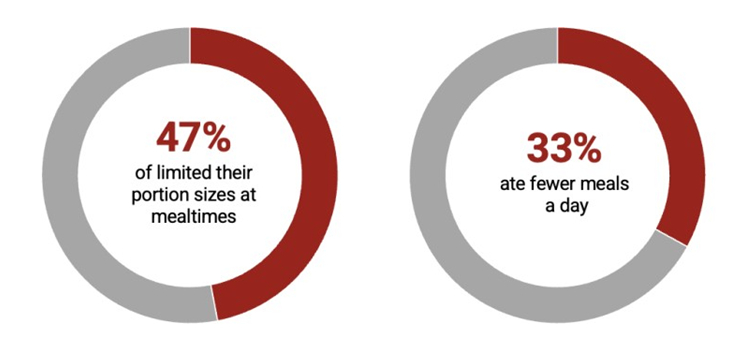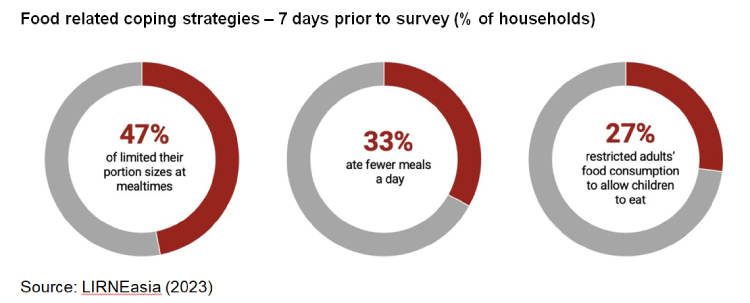June, 12, 2023

A recent nationally representative survey by LIRNEasia, a regional think tank, showed that worryingly, 33% of households in Sri Lanka reduced their food consumption in the 7 days prior to survey implementation due to the economic crisis.

Further, in 27% of households, adults restricted their food consumption to allow their children to eat. Dharshani (name changed), a 37-year-old mother from Nuwara Eliya, whose husband is a casual labourer, shared “It was nice and sunny two days ago, but my husband couldn’t find much work. He travelled all over [the town looking for work] but returned home in the evening with very little money. We cooked some food for the children with that money. I went hungry. I have gone hungry for several days like that. But I don’t show my family that I don’t eat.”
Further, 37% of households sold off their household assets to purchase food, while 50% utilized their savings for this purpose. Ranjini (name changed) a 36-year-old mother from Kandy had explained to the researchers that she pawned her jewellery when she didn’t have enough funds to feed her family.
These findings were shared at an event organized by LIRNEasia on Wednesday, 7 June 2023, in which State Minister of Finance, Hon. Shehan Semasinghe delivered the keynote address. Mr. B. Wijayaratne (Chairman, Welfare Benefits Board), Karin Fernando (Team Lead – Sustainable Development, CEPA), Gayani Hurulle (Senior Research Manager, LIRNEasia), and Tharaka Amarasinghe (Statistician, LIRNEasia) participated in the panel discussion, which was moderated by Dhananath Fernando (CEO, Advocata Institute).
Tharaka Amarasinghe of LIRNEasia commented “The economic crisis has been so severe that 7 million Sri Lankans are living in poverty. Our research highlights the lengths people have had to go to get a meal on the table. We met individuals who have given up eating proteins altogether, and vegetables on most days. They’re surviving on a diet of rice and dhal. We need to continue to reform our social safety nets so that it reaches the most vulnerable in society.”
Video Story